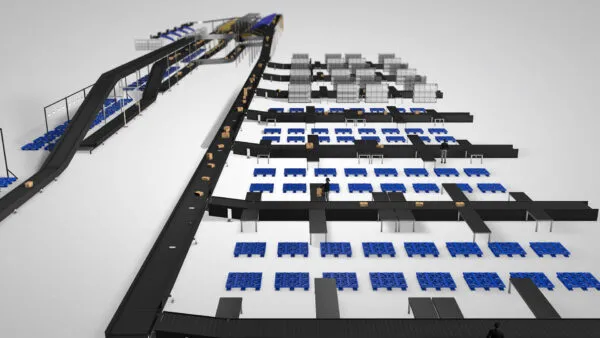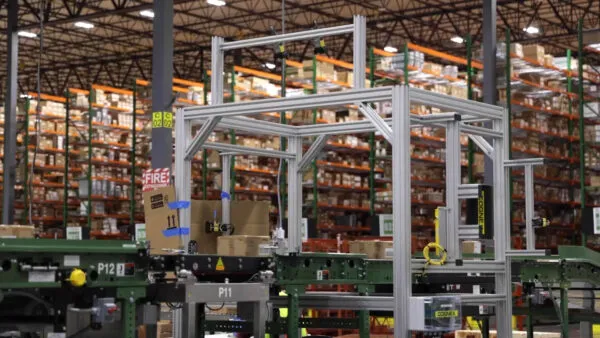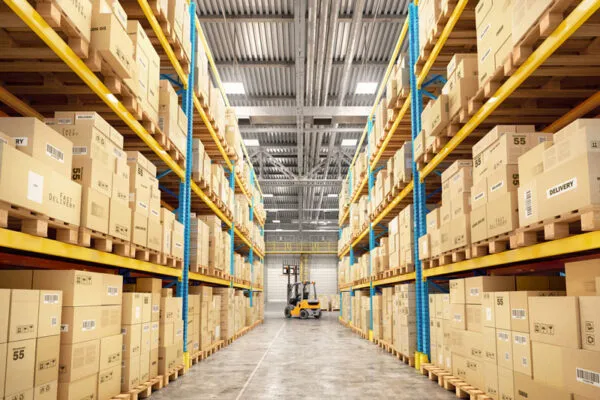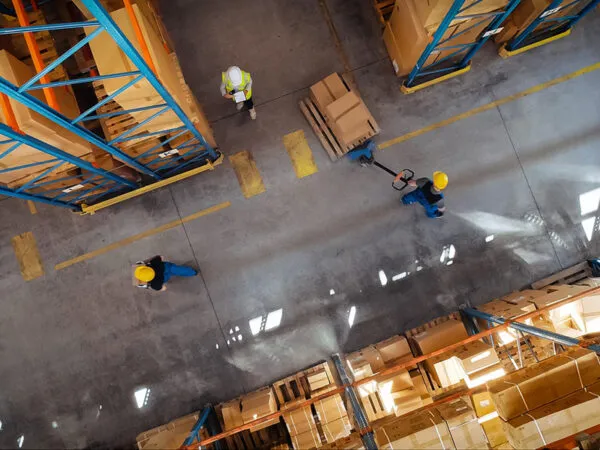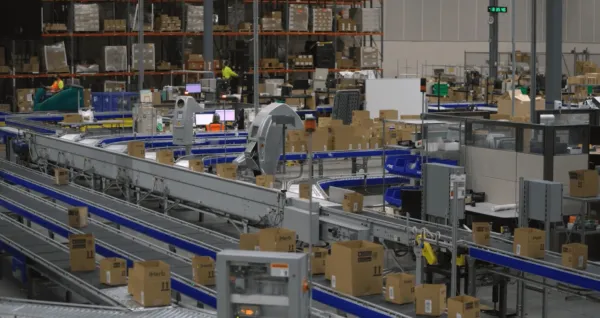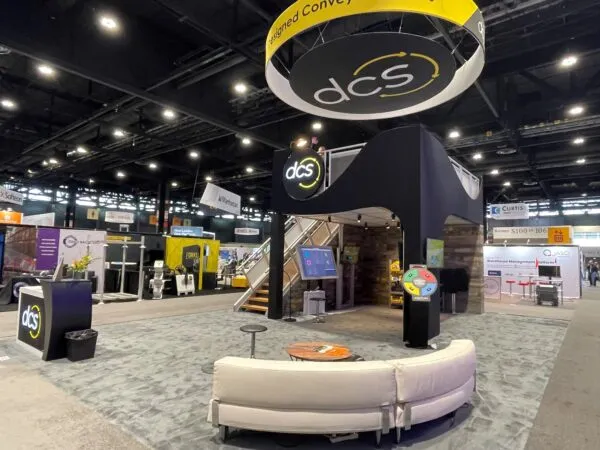
Warehouse Automation
By: DCS
Recently, you’ve felt the increasing demands. More complicated orders. Exacting customer expectations. Rising prices of land and labor.
Perhaps you’ve considered warehouse automation, but the price tags on those massive, complicated systems have scared you away.
Warehouse owners across the United States are turning to automation. As stated in a white paper by Westernacher Consulting, Automation has gained increasing traction over the last few yearsu2026 A recent study by PRG shows that over 10% of warehouses in the U.S. were using sophisticated automation technologies in 2016: a trend that is likely to accelerate in the next five years.
Yes, those lights out warehouses (automation so powerful it can operate without humans present) are expensive, but there are actually four different levels of warehouse automation. This post breaks down each level and weighs the pros and cons of increased warehouse automation.
The Four Levels of Warehouse Automation
Low Automation:
- Description: These warehouses use paper systems and most decisions are made by warehouse workers. These employees decide where to place items with some help from a printed system. This means that workers have to do a lot of walking and that more human errors may occur.
- Cost: Cost of Doing Business
- ROI: Operating Profits
System Automation:
- Description: Westernacher Consulting gives this summary, Here, a Warehouse Management System (WMS) is used to make decisions on where to put away/pick items and manage processes such as de-consolidation, VAS (Value Added Services) and quality inspection. It also optimizes decisions on when to perform the tasks, and who should perform the tasks. According to Westernacher Consulting, such systems generally have higher productivity than low automation systems. They also use space more efficiently.
- Cost: $500,000 to $2,000,000
- ROI: 6 months to 2 years
Mechanized Automation:
- Description: These systems actually help transport the products instead of workers having to carry everything. These often involve conveyor belts or Automated Storage and Retrieval Systems (AS/RS). Both of these move products around for the workers, reducing the distance they have to walk and increasing warehouse efficiency.
- Cost: $5,000,000 to $15,000,000
- ROI: 2-4 years
Sophisticated Automation:
- Description: Westernacher Consulting describes these warehouse systems as, using highly automated equipment to eliminate manual movements and streamline order-picking processes. This level of automation requires systems to handle complex decision-making logic. These would be the lights off warehouses described earlier.
- Cost: $50,000,000+
- ROI: > 5 Years
Pros and Cons of Warehouse Automation
Pros:
- Fewer Mistakes: Machines don’t get tired or have bad days. They are less prone to mistakes than are humans. This also leads to increased safety, productivity, and accuracy, according to Conveyco.
- More Efficient Use of Space: When switching from low automation to system automation, companies see space utilization improve by 10-20%, reported Westernacher Consulting.
- Ease of Use: According to Viastore Systems, Because automated systems are engineered to support people as they go about their tasks, they are designed to be intuitive and easy to use. Training can even take less than 20 minutes, they said.
- Save Money on Labor: Westernacher Consulting stated that, Today, the single largest expense for warehouse operation is labor. Just as bad, it’s harder than ever to attract workers.
- Low Temperatures: You can buy machines that work at cold temperatures where people might have trouble working. The machines may require some modifications so make sure to ask.
- Different Levels: As discussed in the previous section, there are different levels of automation with different prices that you can customize to fit your needs. Whether you want a slight upgrade or full automation, we’ll find something tailor-made for you.
Cons:
An article by Conveyco lists cons including:
- Expensive initial investment: The prices in the above section are expensive, but they should pay for themselves quickly.
- Maintenance: Like all technology, some maintenance is necessary.
- Not for Everyone: As reported in the article, AS/RS [Level 3 automation], like all automation technologies, are best suited for operations that have regular, predictable, and repetitive tasks. Operations that vary widely in terms of product or materials handled from week to week or month to month may find it difficult to make AS/RS fit into their business plan. Because AS/RS works according to preset systems, processes, and analysis, rapid change can be difficult to facilitate.
Automation is an invaluable tool for making your warehouse more efficient and effective. It can save you a lot of money over time. If you’re considering automating your warehouse, we’d love to talk to you.
A businesses warehouse is unique and needs a unique solution. That’s why the first thing we do is listen. DCS builds relationships, sharing ideas and working together with you. We involve you in the process, so the end result is custom-made for your warehouse. Don’t settle for a one-size fits all solution. With nearly 40 years of experience creating material handling solutions, we can help you. We specialize in warehouse design, operations, and automation. Let’s craft a solution together.
